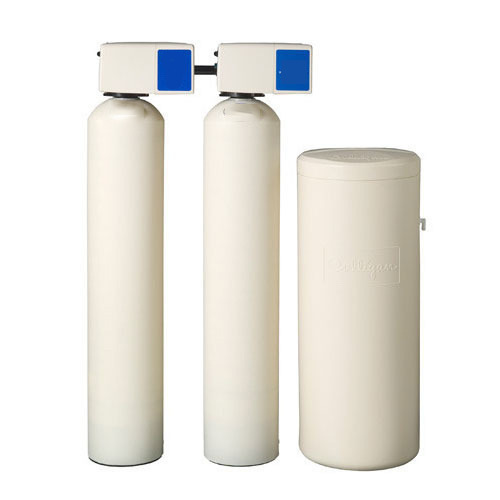Depending on the type of water softener that you use, the magnesium and calcium that is normally found in tap water can be replaced with potassium and sodium. Typically, the amount of sodium that a water softener adds to tap water is small. The total amount does not usually measure over 13 milligrams for every 8 ounces of water. This level of sodium is typically safe enough for those who are healthy. However, if you have high blood pressure, it may not be best to drink soft water.
The healthier option is to bypass the water softener because this type of equipment can also remove a lot of necessary minerals. In fact, the WHO (World Health Organization) recommends that people get up to 20% of their daily magnesium and calcium requirements from drinking water. However, a water softener replaces some of this essential calcium and magnesium with sodium.

There are some people who prefer to use a home drinking water system, so their tap water is healthy to drink.
Reverse Osmosis
If you live in an area where fracking, coal mining or some other type of chemical pollution is occurring, you may need to have your water filtered. This process is known as reverse osmosis. Reverse osmosis is necessary if your tap water smells like oil, rotten eggs or any other type of strong odor.
By installing a reverse osmosis system in your home, you will be able to remove almost 99% of the contaminants that are in the water supply. After the process is completed, you will be left with pure water. The water would then need to be remineralized by allowing it to run through a remineralization cartridge. This type of cartridge will replace the healthy minerals that were lost during the process of reverse osmosis.
How Does A Water Softener Work?
A prevalent problem for homeowners is hard water. This type of water can create buildup of mineral deposits that can lead to clogged appliances and plumbing. The deposits are caused by magnesium and calcium that are commonly found in tap water.

Water softeners use chemical processes that are called ion-exchange that reduce the levels of these minerals in water. This type of equipment also uses negatively charged beads that are made of resin. Keep in mind that the beads do lose their effectiveness over time, and they must be recharged with either potassium or salt.
Any residual salt that is left over after recharging the beads end up in tap water and can eventually be consumed by someone. It is important to understand that it is not the water softener that places salt in the water during the softening process.
When Should You Use Soft Water?
If you use a water softener in your home, that water is ideal for bathing, cleaning and washing. The water can protect appliances in your kitchen from getting calcium deposits. However, soft water should never be used for drinking or cooking. Therefore, a water softener system should not include the water supply that travels to the kitchen sink.
You will need to research different electronic water softener and water filtration systems to find out which ones best meet your needs.
